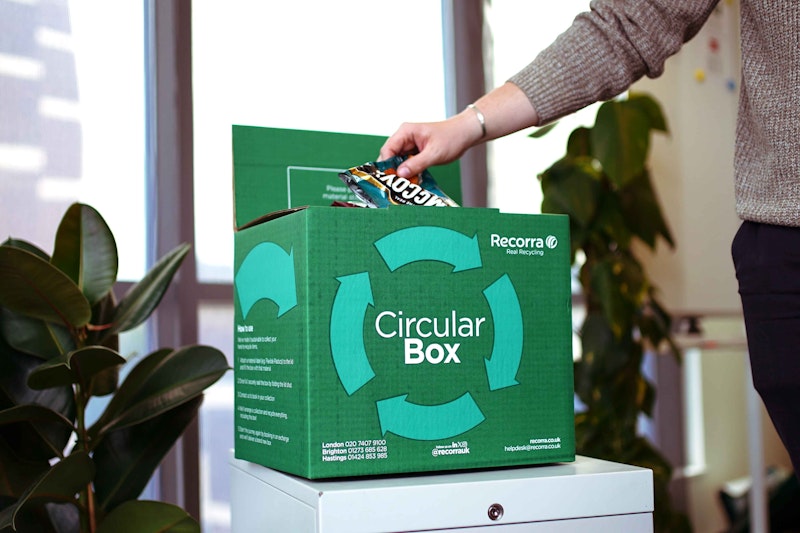The Recorra solution to the plastics issue
It’s Earth Week, and we’ve remembered that we should, in fact, be mindful of the impact we’re having on the planet. Except, at Recorra, that thought lies at the heart of all that we do; helping our customers reduce their environmental impact and minimise their waste output.
This year’s theme is Planet vs Plastics – not because we want to see turtles fight it out with plastic bottles, but because the ever-expanding amount of plastic entering our planet’s ecosystems has presented a huge problem to life on Earth.
According to the UN, the world produces over 400 million tonnes of plastic every year, and we know that less than 9% of this gets recycled.1 This week, Recorra is asking itself: how can we help you, our customers, recycle plastics and minimise your impact on the planet?
With a brand-new name and look, our Circular Box service is designed to capture flexible plastics for recycling. Flexible plastics are notoriously difficult to recycle, and recycling plastics in general can feel complicated and can sometimes cause confusion, so we’ve broken down the basics for you here today.



